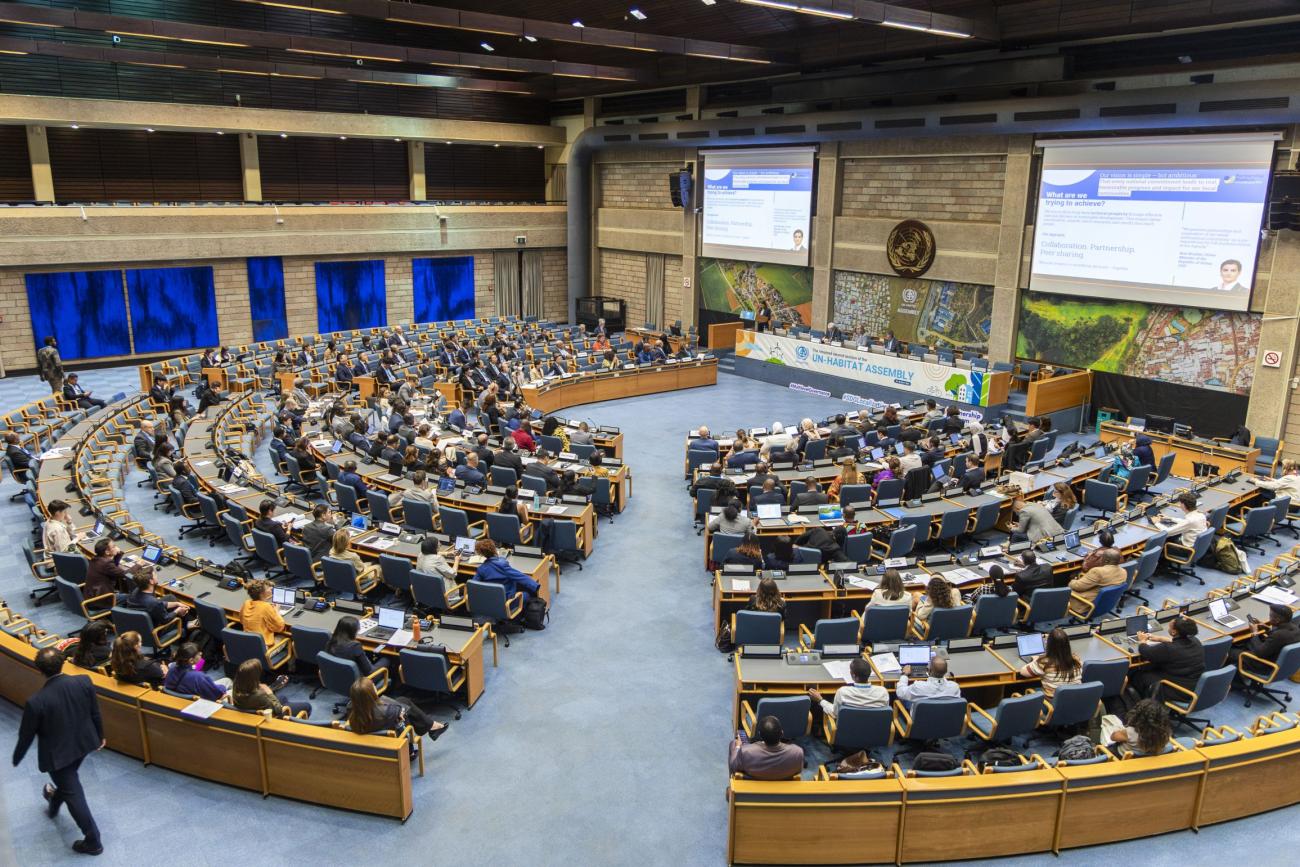Global Vision, Local Action: UN-Habitat Assembly and Priorities for Afghanistan

The UN-Habitat Assembly (29-30 May 2025) closed in Nairobi with a clear message: urgent and unified action is needed to address the global housing crisis.
With millions of Afghans living in informal settlements in fragile shelters and aligned with the new priorities for the agency globally, UN-Habitat Afghanistan has introduced its strategic priorities to tackle the country’s growing urban challenges for 2026 and 2027.
The UN-Habitat Assembly concluded with the adoption of the UN-Habitat Strategic Plan for 2026–2029 — a global blueprint to ensure access to adequate housing, land, and basic services for all.
Through access to housing, land and basic services, UN-Habitat, at global level, aims to have an impact on three major global challenges:
- Equitable and inclusive prosperity for poverty eradication
- Preparedness, response, recovery and reconstruction
- Environment and climate action
The adoption of this strategy comes at a crucial moment for Afghanistan. Today, more than 9 million people live in informal settlements, often in fragile shelters without adequate water, sanitation, or tenure rights. At the same time, Afghanistan is facing one of the world’s largest returnee crises, with millions forcibly returned from Pakistan and Iran since September 2023. Most returnees settle in already overstretched informal areas, which increases the pressure on existing services and livelihood opportunities.
Due to returns, but also climate-change induced displacement, urban growth is accelerating in the country. Four out of every five urban residents in Afghanistan live in informal settlements, and the country’s urban population—currently around 30 per cent—is projected to reach 50 per cent by 2060. Without coordinated action, this rapid population growth will lead to a massive spatial expansion of built-up areas, much of it informal and severely underserviced. If no action is taken now, this development will deepen existing inequalities and increase vulnerability to climate shocks, disasters, and health risks.
In this context, UN-Habitat’s new strategic priorities for Afghanistan are timely and critical. By focusing on enabling adequate housing situations, livelihood opportunities, environmental action, and strengthening urban resilience, UN-Habitat aims to turn today’s challenges into opportunities for the people of Afghanistan - for a more inclusive, safe and better-planned future.
The strategy, driven by UN-Habitat's global strategic plan and the United Nations Strategic Framework for Afghanistan (UNSFA), will be the country office roadmap for the next 2 years to focus on below priorities:
- Protecting the Most Vulnerable: Enhancing access to dignified living conditions and livelihood opportunities, especially in unplanned and underserviced settlements.
- Improving Resilience: Strengthening preparedness, emergency response, recovery, and long-term reconstruction.
- Advancing Climate and Environmental Action: Promoting green infrastructure and resilient urban planning to protect lives, livelihoods, and assets.
Stephanie Loose, UN-Habitat’s Country Programme Manager in Afghanistan, emphasized the urgency of the plan:
“Millions of people in Afghanistan live in informal settlements without or with very limited access to basic services, shelter, or hygiene,” she said. “This strategic paper is a critical tool that guides our efforts to respond to these challenges. It enables us to continue making a real impact in Afghan communities—ensuring no one is left behind.”
UN-Habitat Afghanistan will use this roadmap to strengthen partnerships, scale up interventions, and support Afghan communities in building safer, healthier, and more sustainable urban environments.

